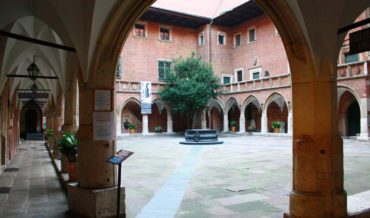Contents
- 1 Key Facts
- 2 Early Life and Education
- 3 Groundbreaking Contributions to Pediatric Medicine
- 4 Pioneer in Preventive Medicine and Public Health
- 5 Revolutionary Approach to Child Development
- 6 Legacy as Medical Educator and Institution Builder
- 7 Enduring Impact on Modern Pediatric Medicine
- 8 References and Further Reading
Key Facts
- Born in 1837 in Krakow, died in 1915 – lived his entire 78-year life in his beloved hometown
- Pioneer pediatrician and professor at the prestigious Jagiellonian University
- Founded the first Department of Paediatrics at Jagiellonian University in 1864 – among the earliest such departments in Europe
- Established Poland's first children's tuberculosis sanatorium in Rabka in 1887
- International medical education – studied in Vienna, Prague, and Paris
- Vaccination pioneer – among the first doctors in Poland to systematically vaccinate children against smallpox
- Balneotherapy expert – pioneered spa treatments for children using natural mineral waters
Early Life and Education
Maciej Jakubowski was a pioneering pediatrician and professor at the Jagiellonian University. Born in 1837 in Krakow and dying there in 1915, he dedicated his remarkable 78-year life to advancing children's healthcare in his native city. Growing up during the period of Austrian partition (1846-1918), when Krakow was part of the Austrian Empire, Jakubowski witnessed the significant health challenges facing Polish families in an era when childhood mortality rates exceeded 30%.
He completed his medical studies at the university, demonstrating exceptional academic ability and developing a particular interest in childhood diseases – a field barely recognized as a medical specialty at the time. Understanding that pediatric medicine was advancing rapidly in major European centers, he pursued postgraduate studies in Vienna, Prague, and Paris, where he learned from leading physicians who were beginning to understand that children required fundamentally different medical approaches than adults.
This comprehensive European medical education proved instrumental in shaping his innovative approach to pediatric care, particularly his understanding of child development, nutrition, and disease prevention methods that were revolutionary for mid-19th century medicine.
Groundbreaking Contributions to Pediatric Medicine
Establishment of Central Europe's Early Pediatric Department
In 1864, Jakubowski founded the first Department of Paediatrics at the university, making it one of the earliest specialized pediatric departments in Central Europe. This achievement occurred during a pivotal period in medical history when pediatrics was emerging as a distinct medical specialty – the first children's hospital had been established in Paris only in 1802, and specialized pediatric training was still rare worldwide.
The department's creation represented a fundamental shift from the prevailing medical practice of treating children as miniature adults to recognizing their unique physiological, developmental, and psychological needs. Under Jakubowski's leadership, the department developed comprehensive treatment protocols specifically designed for pediatric patients, addressing everything from dosage calculations based on body weight to child-friendly examination techniques.
Jakubowski developed innovative curricula that combined theoretical knowledge with extensive clinical experience, ensuring future physicians understood both the science and art of pediatric care. His teaching methods emphasized observation skills, gentle patient handling, and communication techniques appropriate for young patients and their families.
Revolutionary Tuberculosis Treatment Approaches
In 1887, Jakubowski established a specialized sanatorium for children with tuberculosis in Rabka, a mountainous region approximately 50 kilometers south of Krakow. This facility addressed one of the era's most pressing public health crises – tuberculosis was responsible for approximately 25% of all deaths in 19th century Europe, with children being particularly vulnerable.
The Rabka sanatorium represented a revolutionary approach to pediatric tuberculosis treatment, combining medical intervention with environmental therapy. Jakubowski recognized that the region's clean mountain air, lower population density, and natural mineral springs created optimal conditions for recovery. His treatment protocols included structured nutrition programs, graduated physical activity, and psychological support – approaches that would later become standard in tuberculosis care worldwide.
The facility's success in improving recovery rates and reducing childhood mortality from tuberculosis established it as a model for similar institutions throughout the Austrian Empire and beyond.
Pioneer in Preventive Medicine and Public Health
Jakubowski became one of Poland's early advocates for systematic childhood vaccination, particularly against smallpox, which killed approximately 10% of all children in 18th and early 19th century Europe. Despite widespread public skepticism about immunization – Edward Jenner's smallpox vaccine had been introduced only in 1798 – Jakubowski courageously promoted vaccination programs and educated families about their importance.
His preventive medicine approach extended to balneology – the therapeutic use of mineral waters. He developed evidence-based protocols for treating childhood respiratory conditions, skin diseases, and digestive disorders using carefully controlled exposure to specific mineral water compositions. These treatments, initially met with skepticism from traditional physicians, proved remarkably effective and established scientific foundations for pediatric spa therapy. His pharmaceutical innovations and medical practices would later be commemorated at the Museum of Pharmacy at Collegium Medicum, which showcases the evolution of medical treatment at the university.
Jakubowski documented treatment outcomes meticulously, creating some of the earliest statistical evidence for the effectiveness of both vaccination programs and balneological treatments in pediatric medicine.
Revolutionary Approach to Child Development
Jakubowski recognized the fundamental connection between physical health and psychological development – a perspective that was revolutionary in an era when most physicians focused exclusively on physical symptoms. His holistic approach included:
- Comprehensive developmental assessments that evaluated both physical growth and cognitive milestones
- Individualized treatment plans that considered each child's unique developmental stage and family circumstances
- Family education programs that taught parents to recognize early signs of illness and maintain their children's health
- Integration of play and learning into medical treatment to reduce childhood anxiety and promote recovery
This child-centered approach influenced not only medical treatment but also early childhood education practices throughout the region.
Legacy as Medical Educator and Institution Builder
Jakubowski's influence extended far beyond direct patient care through his role as educator and mentor to hundreds of medical professionals. His teaching methodology revolutionized medical education by emphasizing:
Educational Innovations
- Clinical teaching at the bedside rather than purely theoretical classroom instruction
- Compassionate communication skills as essential medical competencies
- International collaboration and knowledge exchange with medical institutions across Europe
- Continuous professional development and adaptation to emerging medical discoveries
Systematic Healthcare Improvements
As an organizational leader, Jakubowski established systematic approaches to pediatric care that improved outcomes measurably. He created standardized protocols for patient examination, treatment documentation, and outcome tracking that became models for medical institutions throughout Central Europe. His emphasis on hygiene, nutrition, and family involvement in treatment established practices that reduced hospital-acquired infections and improved recovery rates significantly.
The academic environment of the University Quarter provided the ideal setting for his pioneering work, where he could collaborate with other scholars and establish the institutional framework for modern pediatric medicine.
Enduring Impact on Modern Pediatric Medicine
Jakubowski's contributions fundamentally transformed medical practice in Krakow and established lasting foundations for pediatric care that continue influencing modern medicine. His integration of preventive care, family involvement, and holistic treatment approaches anticipated many principles that are now recognized as best practices in contemporary pediatric medicine.
The pediatric department he established continues operating today, maintaining his tradition of combining cutting-edge medical treatment with compassionate, family-centered care. His emphasis on treating the whole child – not just symptoms – helped establish Krakow as a regional center for pediatric excellence that continues attracting patients and medical students from throughout Central and Eastern Europe.
Modern pediatric practices including family-centered care, preventive medicine focus, and recognition of the psychological aspects of childhood illness can trace their conceptual roots to pioneering work by physicians like Jakubowski who understood that effective child healthcare required both scientific rigor and deep human compassion. His work significantly impacted the history of Krakow's population, particularly in reducing childhood mortality rates in the city.
Today, visitors to Krakow can learn more about this remarkable physician's legacy at the Jagiellonian University Museum, which preserves the history of the institution where he made his groundbreaking contributions. His story is also part of the rich tapestry of famous Polish people who have made lasting contributions to medicine and society. The Historical Museum of Krakow provides additional context about the city during Jakubowski's era, while the National Museum houses artifacts from the period when he revolutionized pediatric care. Visitors exploring the historic Old Town can appreciate the environment in which this pioneering physician lived and worked throughout his remarkable 78-year life.
References and Further Reading
Historical documentation about Maciej Jakubowski can be found in the archives of Jagiellonian University's Medical Faculty, Polish biographical dictionaries including "Polski Słownik Biograficzny," and historical records from the Rabka sanatorium. For comprehensive information about 19th-century pediatric medicine development, consult medical history publications from the Polish Society of Medical History and European medical education historical archives.

